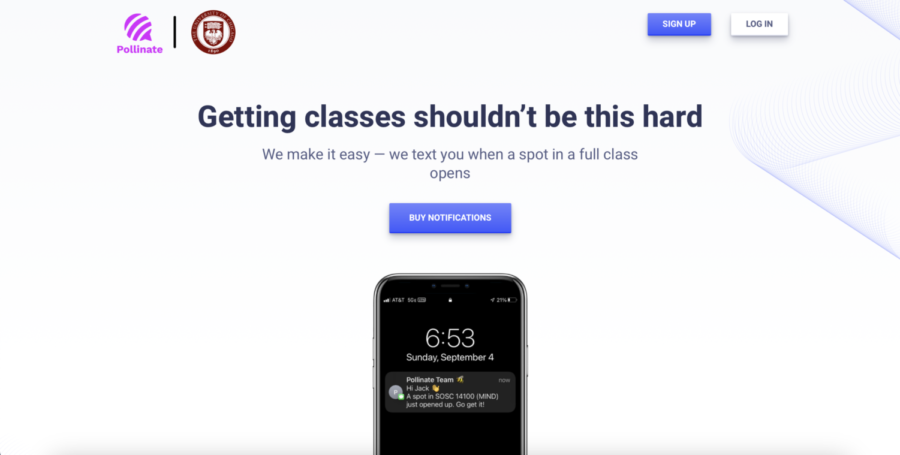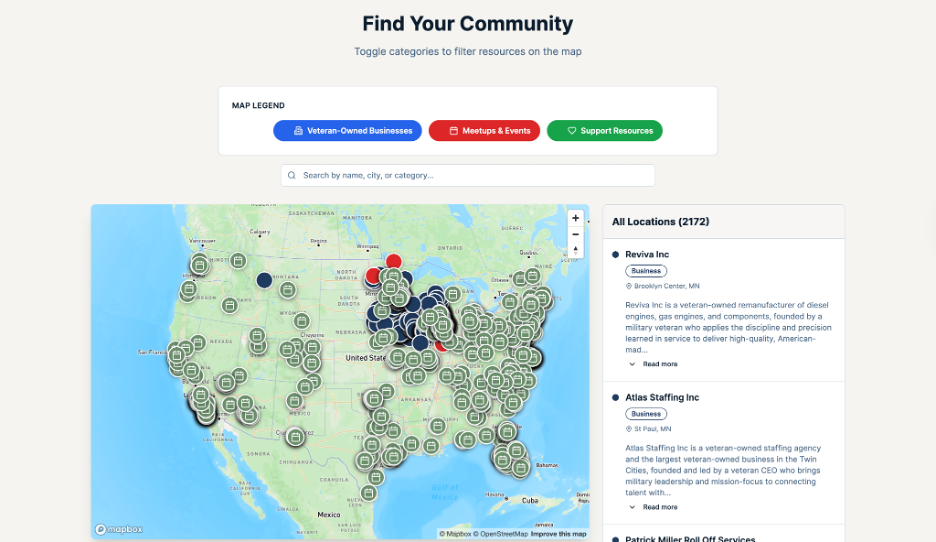Fourth-years Jack Ogle and Jon Merril have focused their latest campus start-up venture on the course selection process for UChicago undergraduate students. Pollinate, founded by the pair last fall, is an online service that simplifies add/drop and helps users get into competitive classes.
Driven by a desire to “build something which people want,” according to Ogle, the two developed a product that helps students secure classes using automated text notifications and real-time updates regarding course enrollment numbers.
The add/drop period begins after the conclusion of pre-registration, on the Monday after the last week of courses in a given quarter. During add/drop, students may drop courses they are already enrolled in and add courses that haven’t been filled to capacity. Certain courses that require instructor consent or are already at capacity must be requested. Most professors work with the registrar to review course requests and can manually accept students into courses at their discretion.
Pollinate helps students get into classes that are already filled to capacity. When add/drop opens, students can visit Pollinate’s website and pay $10 per class to request live updates for when seats become available in their target courses. Pollinate’s software works by using a web scraping tool, which retrieves information about a class’s enrollment status from the registrar website in real time. Once a seat opens in the class, users are notified via an automated text service.
Merril describes the service as “user-friendly, efficient and reliable” and encourages users to run a free demo of the product on the Pollinate website, receiving complimentary texts for a class of their choice.
Merril and Ogle offer another service through Pollinate: custom emails written on behalf of users, which appeal to professors to manually enroll students into classes. After chatting informally with their academic advisors, the two claim that the registrar gives professors full discretion to manually move students up and down a waitlist, even adding students to over-enrolled classes.
In Ogle’s view, this is a major flaw in add/drop, because “the professors have the power to over-enroll any non-Core class.” He believes that “the professor’s job is to teach the class, not be the gatekeeper.”
But as long as the current system stands, Pollinate’s email-writing service allows students to directly request enrollment from professors, who they claim have unilateral power over the process.
Pollinate wasn’t always a pre-reg service; Ogle, Merril, and previous partners Henry Myers and Joshua Weisskopf first created it as a productivity service that helped students focus on their work through scheduled Zoom study sessions. “We weren’t able to quite grasp all the complexities of that problem,” said Ogle, who decided with Merril that course selection problems were a more discrete, solvable issue.
Ogle and Merril’s pivot away from productivity has allowed their business to grow. At the time of this article’s publication, Pollinate’s add/drop product has only been active for two quarters but has grown in revenue by 70 percent and garnered 147 unique users, 14 percent of whom are returning customers from fall quarter.
Ogle and Merril believe Pollinate has been successful because of their creative marketing efforts. The two have worn Pollinate sandwich board signs on the quad and camped out in Regenstein Library to directly recruit new users, bringing their product directly to the UChicago community. In interacting with prospective customers and, in Ogle’s words, being “absolutely shameless about advertising,” the two continue to “listen to users and give people what they want.”
Following conversations with students, Ogle and Merril plan to unveil a new suite of course selection–related products next quarter. In spring, Pollinate will provide a course-ranking service that suggests course rankings for students to optimize their chances of enrollment during pre-reg. They will also offer a course-search platform that consolidates historical demand and feedback forms for courses.
In the long term, Ogle has national ambitions for his product. “I sincerely believe that this product would grow to every school if it was insanely good,” he said. In the meantime, he and Merril will continue their journey to crack UChicago’s course selection process, connecting with users to build a product they need.









